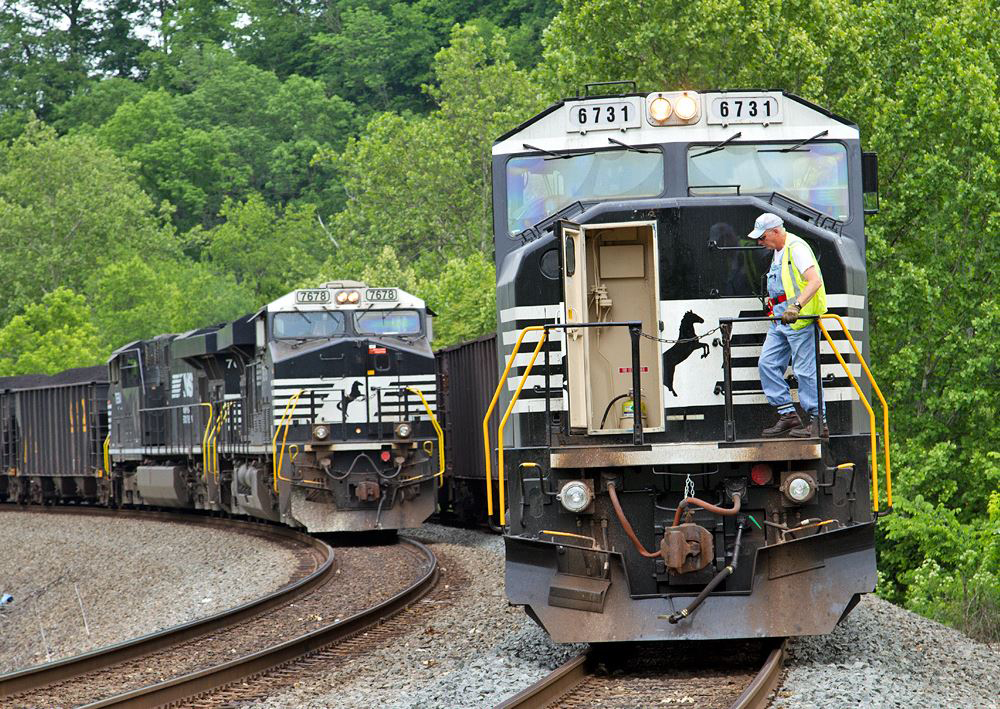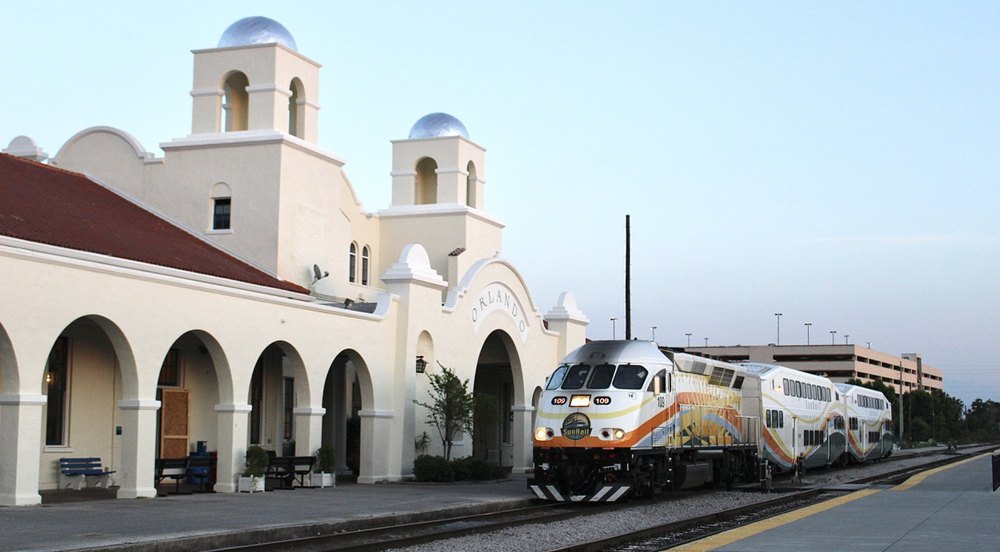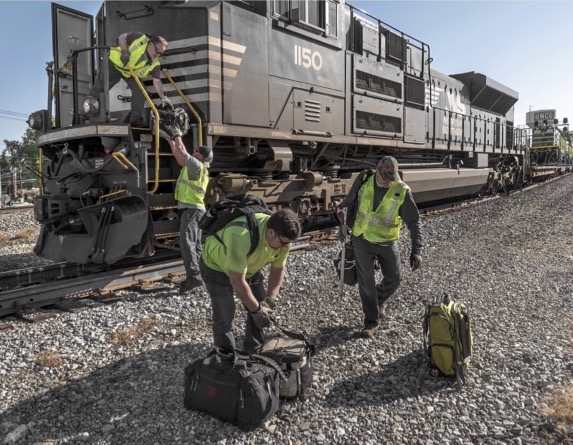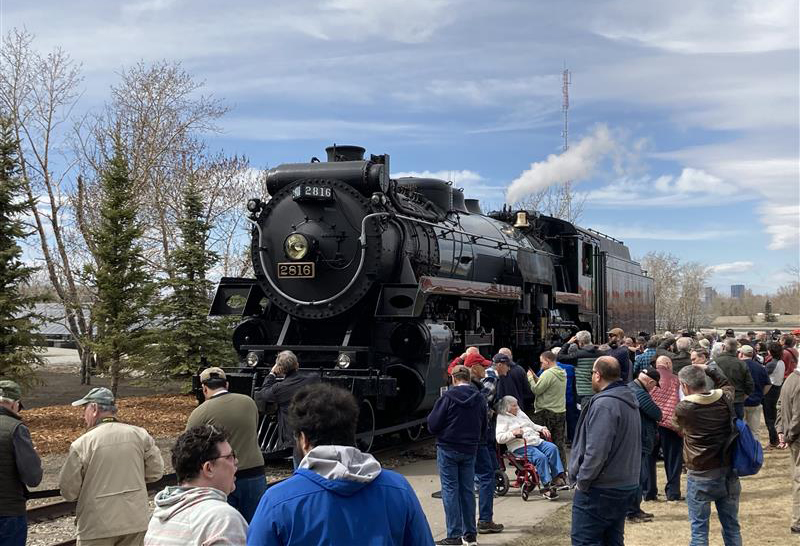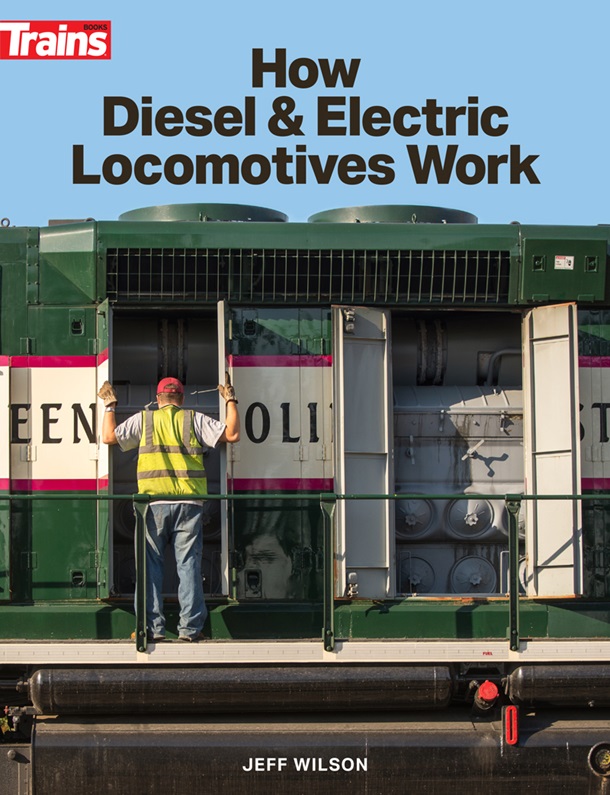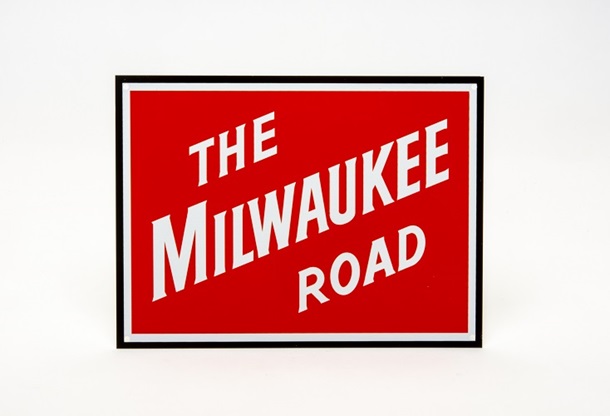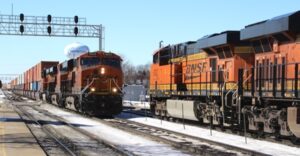
OMAHA, Neb. — BNSF Railway’s revenue and profits fell in 2020 due to the pandemic-related declines in traffic volume, the railroad’s corporate parent, Berkshire Hathaway, reported on Saturday.
Pre-tax earnings declined 6.3%, to $6.8 billion, as revenue fell 11.3%, to $20.2 billion. The railroad’s net income fell 5.8%, to $5.2 billion.
BNSF’s operating ratio for the year was a record-low 61.6%, a 2.9-point improvement over 2019 as expenses declined 15.3%. “Railroad operating expenses in 2020 reflected lower volume-related costs, productivity improvements, the effects of cost control initiatives and improved weather conditions compared to 2019,” Berkshire Hathaway said in its regulatory filing.
“Earnings in 2020 reflected lower railroad operating revenues from lower shipping volumes, attributable to the negative effects of the COVID-19 pandemic, partly offset by lower operating costs and the effects of productivity improvements,” Berkshire Hathaway said.
The revenue decline reflected a 7.2% decrease in volume and a 4.5% decrease in average revenue per car/unit. BNSF made “significant improvements in 2020 in service, system velocity and cost performance compared to 2019,” Berkshire Hathaway said.
Consumer products revenue, which includes intermodal and automotive traffic, declined 7.6%, to $7.3 billion, primarily due to a 6.3% decrease in average revenue per car/unit along with lower volumes. “Lower international and automotive volumes were offset by higher domestic intermodal volumes,” Berkshire said. “Increased retail sales, inventory replenishments by retailers and e-commerce activity produced recovery of intermodal volumes in the second half of 2020.”
Industrial products revenue sank 17%, to $5 billion, primarily due to lower volume. “Volumes decreased primarily due to lower U.S. industrial production driven by the pandemic, including reduced production and demand in the energy sector, which drove lower sand and petroleum products volume, along with reduced steel demand, which drove lower taconite volume,” Berkshire said.
Agricultural products revenue increased 2.9% to $4.8 billion due to higher volumes. “The volume increase was primarily due to higher grain and meal exports, partially offsetting adverse impacts of the pandemic, primarily for ethanol and sweeteners shipments,” Berkshire said.
Coal revenue sank 28.5%, to $2.7 billion, as volume and revenue per unit both fell. “Volumes decreased primarily due to lower natural gas prices, lower electricity demand driven by the pandemic, utility coal plant retirements and mild temperatures,” Berkshire said.
Berkshire Hathaway did not break out fourth-quarter results for BNSF, but the railroad is expected to do so in a regulatory filing on Monday.






